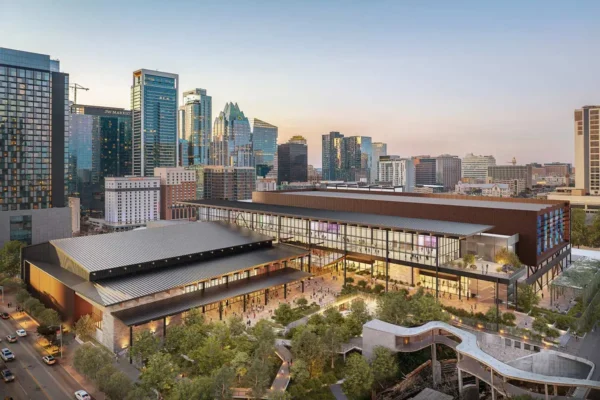Editor’s note: Welcome to The Green Piece, a new monthly column for Exhibit City News. Each month, this column will investigate sustainable business practices as they relate to the tradeshow industry.
I grew up in an America where roadways were populated by oversized, gas-guzzling cars. Labels on almost everything I can remember from my childhood proudly read; “This product constructed entirely of man-made materials.” A polyester, polyurethane, petroleum-based, pressboard plethora of products dominated the consumer landscape.
Environmentalists were mostly tree-hugging hippies who lived in communes and penned thought-provoking bumper stickers like “save the whales” and “flower power.”
The extent of my environmental education was when my mother taught a pre-school-aged me that it was very naughty to litter. As a child, I felt entirely righteous when I stooped to pick up a soda can that some irresponsible world citizen had discarded on the side of the road.
After all, recycling was the act of taking aluminum cans to the vending machine at the grocery store and getting quarters to buy more soda. Somewhere along the line, I also learned to snip plastic six-pack collars so that marine animals would not get stuck in them and die. Jacque Cousteau had nothing on me.
In spite of America’s frenzied appetite for manufactured goods, it seems that in some ways, the environment received its due recognition in my birth year in 1970. The U.S. Environmental Protection Agency was formed and the first earth day was celebrated. Recycling in this country got its big start shortly after; courtesy of the oil shortage and rising energy costs.
Think of this
Since the industrial revolution began in the mid 1700s, the world’s population has increased from 1 billion in 1820, to a projected 7 billion in late 2011. The consumption of resources has surpassed even this exponential population growth, demanding that the planet produce and then heal at a rate beyond its ability.
Thus, the necessity for sustainable business practices, managing resources in a way that meets our current needs while ensuring that those resources will still be here for future generations, has become vital to our survival as a species.
Who could have ever imagined that, in the new millennium, those hippies would become CEOs and environmental activism would move from the fringes of society to become an entrepreneurial phenomenon? The emerging green economy is now all around us. When even oil companies are forming non-profit environmental groups, you know that it’s time to pay attention.
Doing business these days requires that we all take a vocabulary lesson. For instance, you might hear a colleague remark, “I must be careful to avoid media green washing while I’m wearing my sweatshop-free clothing and drinking my fair trade organic coffee in a cup made from environmentally friendly, downcycled materials as I work in my LEED certified office building pioneering advances in tradeshow energy reduction and attempting to minimize my carbon footprint.” Say what?
It is no coincidence that money is also green. Companies are finding that they can become fiscal conservationists when they employ environmental initiatives, like reducing energy consumption or adopting paperless operations.
Consumers are demanding green alternatives everywhere, from supermarket shelves to car lots. Since we vote with our pocket books in America, enlightened consumers are the driving force behind the emergence of sustainable goods and the fast-growing, green economy.
Green living also means that we consume less. The result is that we also spend less. This is what is referred to in the modern vernacular as a “win-win” situation.
Green is seeping into every imaginable sector of business many of which have a direct impact on tradeshows, including; manufacturing, shipping, technology, agriculture, construction and energy.
The exhibit industry is adapting too and offering alternatives like recyclable booth components, paperless marketing options and green promotional items.
Each month, I will examine some green, and some not-so-green aspects of the meetings industry from an environmental and fiscal standpoint. As I point out the benefits of sustainable tradeshow practices, we will all begin to see the show through green eyes.
Green Tip:
The exhibit industry demands a lot of travel. The next time you are making travel plans, consider greener transportation options. Believe it or not, trains generate substantially less CO2 than planes do. Although a train ride from Washibgton DC to New York takes three hours, flying isn’t much faster after arriving at airports two hours before take-off. Amtrak also offers business class tickets with conference tables available so you can work comfortably while you travel.
Haley Wilson is a green business development consultant in Las Vegas, Nevada. She assists companies with the implementation of greener practices, marketing strategies and brand identities. She can be reached at haley@thrugreeneyes.com.
| Home |
| People on the Move |
| National News |
| Regional News |
| Features |
| Tradeshow Calendar |






























